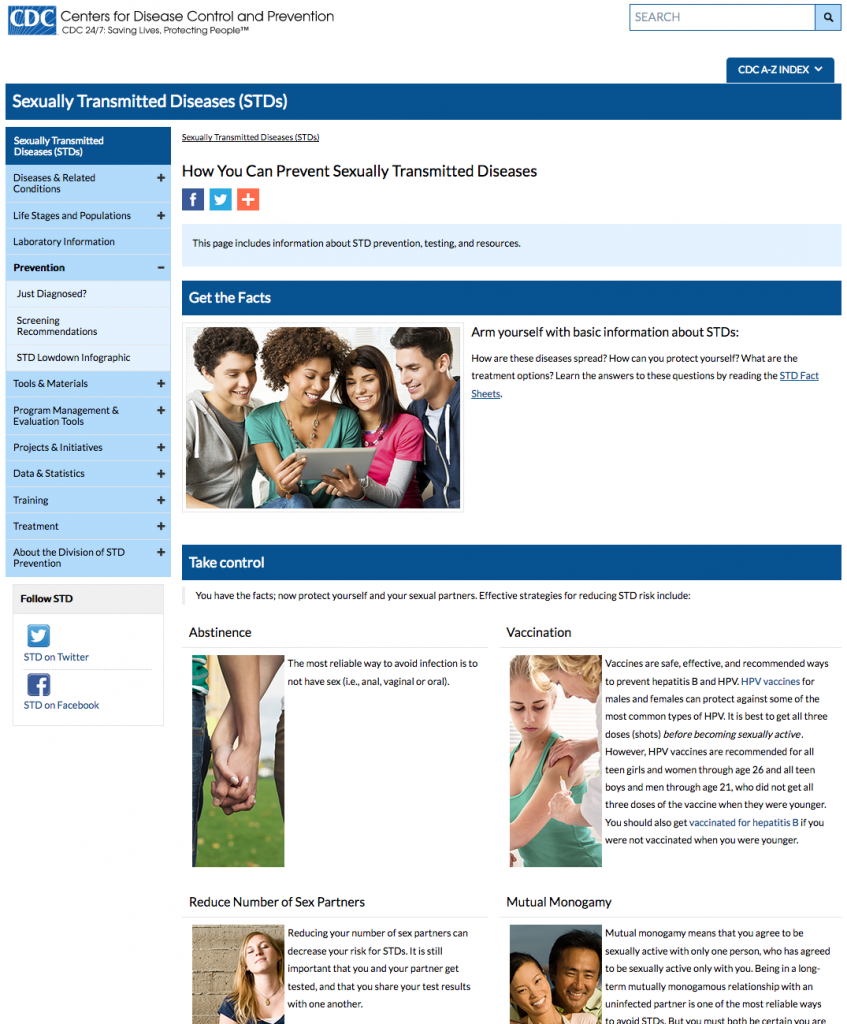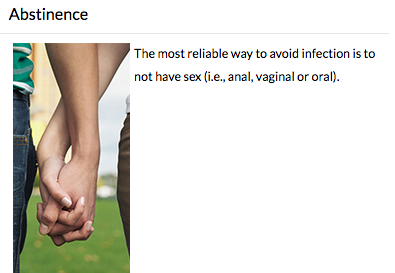 Many of you might have seen or read about a report in the September issue of Journal of Adolescent Health where researchers asserted abstinence-only education is “scientifically and ethically flawed.”
Many of you might have seen or read about a report in the September issue of Journal of Adolescent Health where researchers asserted abstinence-only education is “scientifically and ethically flawed.”
So let me ask a taboo question in the Christian community:
Are they right? Is there any legitimacy to this claim?
This isn’t the first time we’ve seen people bashing abstinence programs. Back in 2004 a report prepared for House Democrats shredded abstinence programs, citing “errors and distortions” in eleven of thirteen abstinence-only curricula. (Which is interesting to look at in hindsight—a report that cited STDs going down—now that we all remember 2008 reports emerged citing 1 in 4 teens girls have an STD, and now recent reports revealing STDs at an all time high.)
But does this new bash on Abstinence-Only programs hold any water?
In the report, Laura Lindberg, co-author of the report and supporter of abortion rights claims, “We fail our young people when we don’t provide them with complete and medically accurate information.”
On that point—I can’t disagree. In fact, I wish both sides of this argument would listen to that point, because honestly, both sides tend to teach biased information.
Why not just give young people all the information so they can make an informed decision? That’s what I do at school assemblies. In fact, just a few months ago I addressed an audience of young people on this very subject and one of the first things I did was open up the CDC web page about STDs. That’s one thing I like about the CDC web page—it’s a source that everyone seems to trust.
Try that right now. If you browse on over to the CDC website and click on the page about STD prevention, here’s what is looks like:
It’s fun to literally read this web page with young people. Parents should do this. Start where the CDC starts—note they say, “Get the facts.” Try it. Click on their STD Fact Sheet. This brings you to a page with fact sheets on every STD. Give it a whirl. Click on HIV/AIDS. Then read the first sentence under, “What can I do to prevent getting STDs and HIV?”
The only way to avoid STDs is to not have vaginal, anal, or oral sex. If you are sexually active, you can do the following things to lower your chances of getting STDs and HIV…” (emphasis mine). Then they list things like choosing less risky sexual behaviors and using condoms consistently and correctly.
Try another STD. Click on HPV… the most common STD. Look what it says in the first paragraph:
HPV is so common that nearly all sexually active people get it at some point in their lives.
Wow! Talk about your party pooper!
Are all these people not wearing condoms… or is there a chance that condoms aren’t very effective with HPV?
Keep reading about how HPV is spread, it’s health problems, and how it’s one of the leading causes of cervical cancer. But then get to the nitty gritty: “How can I avoid HPV and the health problems it can cause?”
Use latex condoms the right way every time you have sex. This can lower your chances of getting HPV. But HPV can infect areas not covered by a condom – so condoms may not fully protect against getting HPV.
If you want more information, go to the CDC’s condom effectiveness page where it says clearly:
A greater level of protection is provided for the diseases transmitted by genital secretions. A lesser degree of protection is provided for genital ulcer diseases or HPV because these infections also may be transmitted by exposure to areas (e.g., infected skin or mucosal surfaces) that are not covered or protected by the condom.
Good information for kids to have.
So let me ask a simple question: How many sex educators and condom advocators are letting kids know this?
Being fair… let me ask another question: how many abstinence-only educators are showing kids this?
The fact is, abstinence-only educators are often scared to show kids that condoms can be effective in preventing HIV, because they think this information will be a license to have sex freely. In the same way, condom advocates are scared to share the limited effectiveness of a condom against HPV because they think this will prevent kids from wearing condoms.
I’ve got an idea… tell kids the truth! In a world where young people are soaking in the lies about sex for literally hours each day, expose them to a little bit of truth.
Look back at that main CDC STD prevention page. Right under the “Get the Facts” section read what it says under the next heading, Take Control:
You have the facts; now protect yourself and your sexual partners. Effective strategies for reducing STD risk include…
And note what they list. The first thing they list is:
When you keep reading you’ll see they also encourage you to limit sex partners, consider mutual monogamy, and finally, fifth, they finally recommend a condom.
Interesting. And that’s from the CDC.
When I talk with kids I begin with the CDC, telling them honestly, “You need all this information as you make this decision.” But I don’t stop there. Then I share with them a little about the psychological effects of all this, monogamy vs. promiscuity. Fascinating what research actually reveals.
And if I’m in a setting where I’m allowed to share scripture, I’ll finally share, “And guess what? This is the way God designed us. One man and one woman sharing this amazing gift of sex and intimacy with each other for a lifetime!”
Are you telling young people the whole truth?
MORE RESOURCES:
Here’s a blog post with my sex talk written out
Here is the inexpensive little book (literally $5) I give to teenagers on the subject with all this research, Sex Matters. (or in bulk).
Here’s my book to parents and sex educators about how to have this talk with today’s young people, More Than Just the Talk
Posted in Sexuality, Youth Culture | Tags: abstinence-only, CDC, rise in STDs, sex, sex education, std prevention, stds, teen sexual activity, teens | Leave A Comment




 Follow
Follow

Good article Jonathan, and good use of “neutral” fact-based resources. One other question I ask when I get to God’s design for sexuality is this: “If suddenly everyone in the world followed God’s design for sexuality, what problems in the world and in relationships would simply go away?” It’s admittedly an impossibility, but it points out that God’s design gets rid of a lot of evils and wrongs in this world – porn, sex trafficking, adultery, affairs, a lot of divorce and broken families (although they’d still break for other reasons), etc. You can also make that question more personal by asking people what would have been different in THEIR lives if they had always followed God’s design? It’s another way to point out that God knows what’s best!